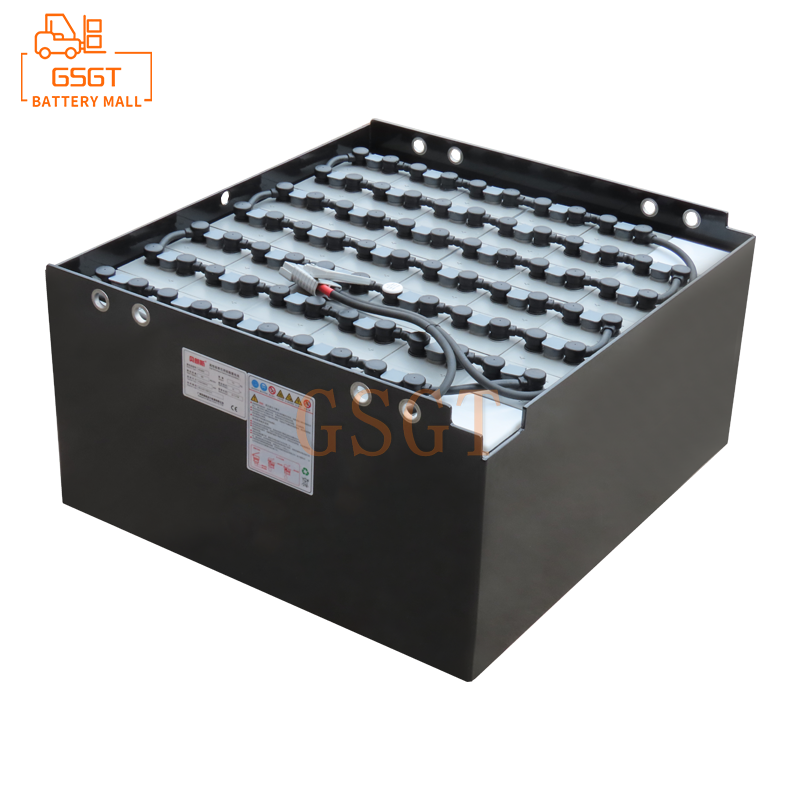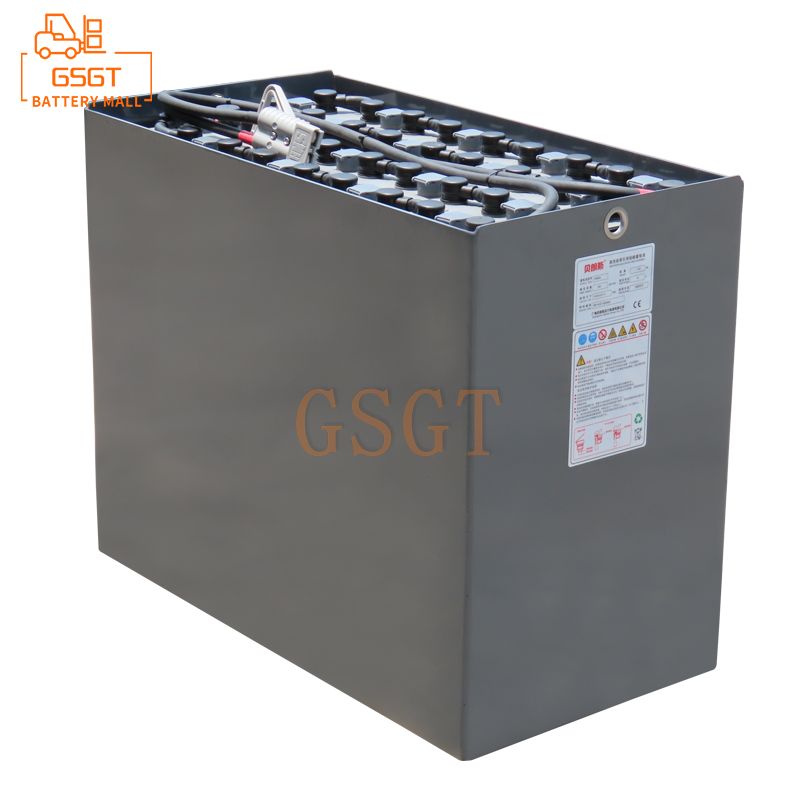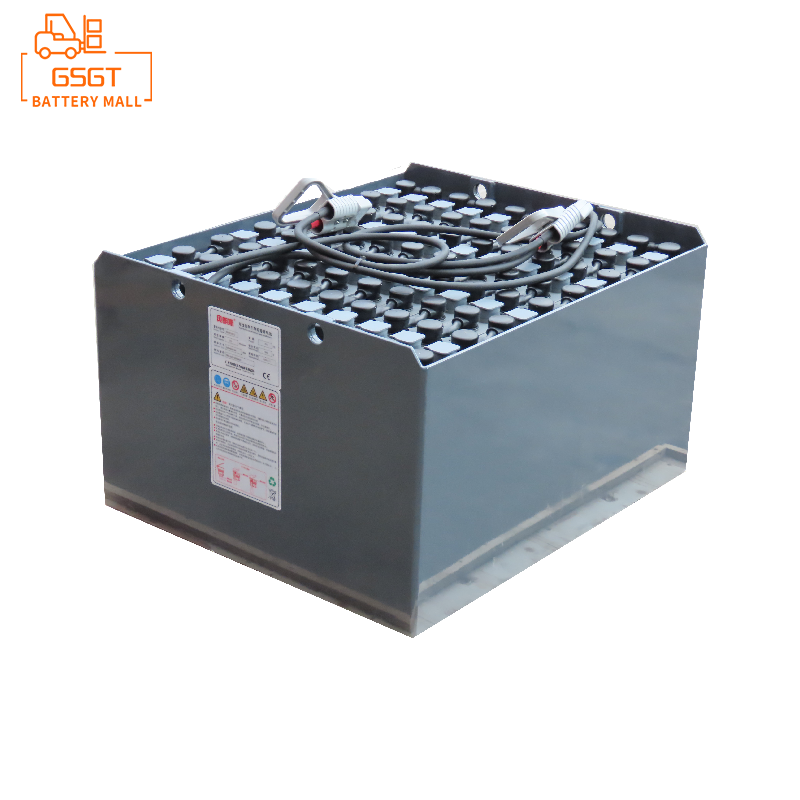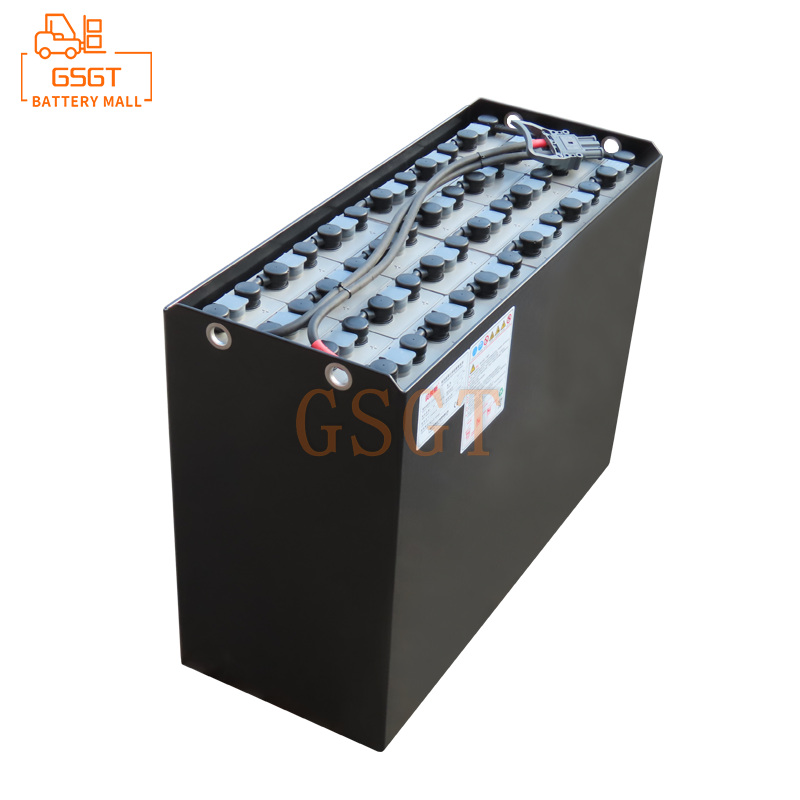Time:2025-07-17 14:47:22
Browse:625
In fields such as logistics and warehousing, industrial production, forklifts, as important handling equipment, the selection of their power sources directly affects operational efficiency, operating costs and safety. At present, lead-acid batteries have become one of the mainstream choices for forklift power systems due to their many significant advantages. This article will conduct a detailed analysis of the advantages of using lead-acid batteries in forklifts and answer some common questions.
First, it has a significant cost advantage, reducing the initial investment of enterprises
For enterprises, the initial investment cost of equipment is an important factor that cannot be ignored. Lead-acid batteries have shown obvious advantages in this aspect. Compared with other types of batteries such as lithium batteries, lead-acid batteries have a mature production process and relatively low raw material prices, which makes their overall cost lower.
The price of a set of lead-acid batteries for forklifts is usually much lower than that of lithium batteries of the same specification. For enterprises that need to be equipped with forklifts on a large scale, such as large warehousing centers and manufacturing factories, choosing lead-acid batteries can significantly reduce the initial investment in equipment procurement and alleviate the financial pressure on the enterprise. Moreover, the supporting charging equipment for lead-acid batteries is relatively simple and has a low cost, further reducing the overall expenditure of enterprises.
Second, it has high safety and ensures a stable working environment
In industrial operation environments, the safety of equipment is of vital importance, and as a power source, the safety of batteries cannot be ignored either. After years of development and improvement, lead-acid batteries have become highly mature in technology and their safety has been fully verified.
Under normal use and maintenance conditions, the probability of safety accidents such as explosion and fire occurring in lead-acid batteries is extremely low. It does not, like some battery types, tend to undergo intense chemical reactions when subjected to impact, puncture or overcharging. Even if some minor malfunctions occur during use, such as electrolyte leakage, they can be resolved through simple handling methods and will not cause serious safety issues.
This feature is particularly important for forklift operations. Forklifts often operate in narrow warehouses, workshops and other environments, where a large amount of goods may be piled up around. Once there is a safety issue with the battery, the consequences would be unimaginable. The high safety of lead-acid batteries can effectively ensure the stability of the working environment, reduce the occurrence of safety accidents, and protect the property of enterprises and the lives of employees.
Third, it is easy to maintain and reduces the operating costs in the later stage
The later maintenance cost of forklifts is also an important expense in the operation process of enterprises, and lead-acid batteries have obvious advantages in maintenance.
The maintenance methods for lead-acid batteries are relatively simple and do not require complex techniques or professional equipment. After a simple training, operators can carry out daily maintenance work, such as regularly checking the electrolyte level, adding distilled water, and cleaning the battery surface. These maintenance tasks are not only easy to operate, but also require low-cost maintenance materials, which can effectively reduce the later operating costs of enterprises.
In contrast, the maintenance of some new types of batteries often requires professional technicians and expensive equipment, resulting in high maintenance costs. For some small and medium-sized enterprises, this may be a considerable burden.
Fourth, adapt to various environments and enhance operational flexibility
The working environment of forklifts is diverse, and they may operate in different conditions such as high temperature, low temperature, and humidity. This places high demands on the adaptability of batteries. Lead-acid batteries can maintain relatively stable performance in various environments.
In low-temperature environments, although the capacity of lead-acid batteries will decline to a certain extent, they can still operate normally and meet the basic operational requirements of forklifts. However, in high-temperature environments, as long as appropriate ventilation and heat dissipation measures are taken, lead-acid batteries will not show significant performance degradation. In addition, lead-acid batteries have a relatively strong tolerance to humid environments and their service life and performance will not be affected by humidity.
This excellent environmental adaptability enables forklifts equipped with lead-acid batteries to operate flexibly in more scenarios without being overly restricted by environmental factors, thereby enhancing the operational efficiency of enterprises.
Frequently Asked Questions and Answers
Question: How long is the service life of lead-acid batteries used in forklifts approximately?
Answer: The service life of lead-acid batteries used in forklifts is influenced by multiple factors, such as usage frequency, charging methods, and maintenance conditions. Generally speaking, under normal use and standardized maintenance, its service life can reach 1,500 charge and discharge cycles. If enterprises can rationally arrange the use and charging of forklifts and do a good job in daily maintenance, their service life can be further extended.
What should be noted during the charging process of lead-acid batteries?
Answer: When charging lead-acid batteries, the following points should be noted: Firstly, use the matching charger and avoid using chargers that do not meet the specifications to prevent damage to the battery. Secondly, the charging environment should be well-ventilated. Charging should be avoided in a confined space to prevent the accumulation of gases produced by the evaporation of the electrolyte, which may cause safety issues. Furthermore, it is necessary to master the correct charging time. Do not overcharge, nor frequently use the battery before it is fully charged. Both overcharging and undercharging will affect the battery's service life. Finally, during the charging process, pay close attention to the battery's temperature. If the battery temperature is found to be too high, stop charging immediately, check the cause and take appropriate measures.
Question: Is it troublesome to deal with lead-acid batteries after they are scrapped? Will it cause pollution to the environment?
Answer: Lead-acid batteries are recyclable products. Their main components, lead and sulfuric acid, can both be recycled and reused through professional recycling and processing techniques. Formal recycling enterprises will adopt environmentally friendly treatment methods and will not cause pollution to the environment. After lead-acid batteries are scrapped, enterprises should hand them over to qualified recycling units for processing. This not only meets environmental protection requirements but also enables the recycling of resources.
In conclusion, the use of lead-acid batteries in forklifts has significant advantages in terms of cost, safety, maintenance, and environmental adaptability, and can bring many conveniences and benefits to the production and operation of enterprises. For most enterprises, lead-acid batteries are undoubtedly the ideal choice for forklift power sources.

$7660

$3160

$8340

$2610

MESSAGE
Professional And Efficient
Security
Affordable Price
Professional Services